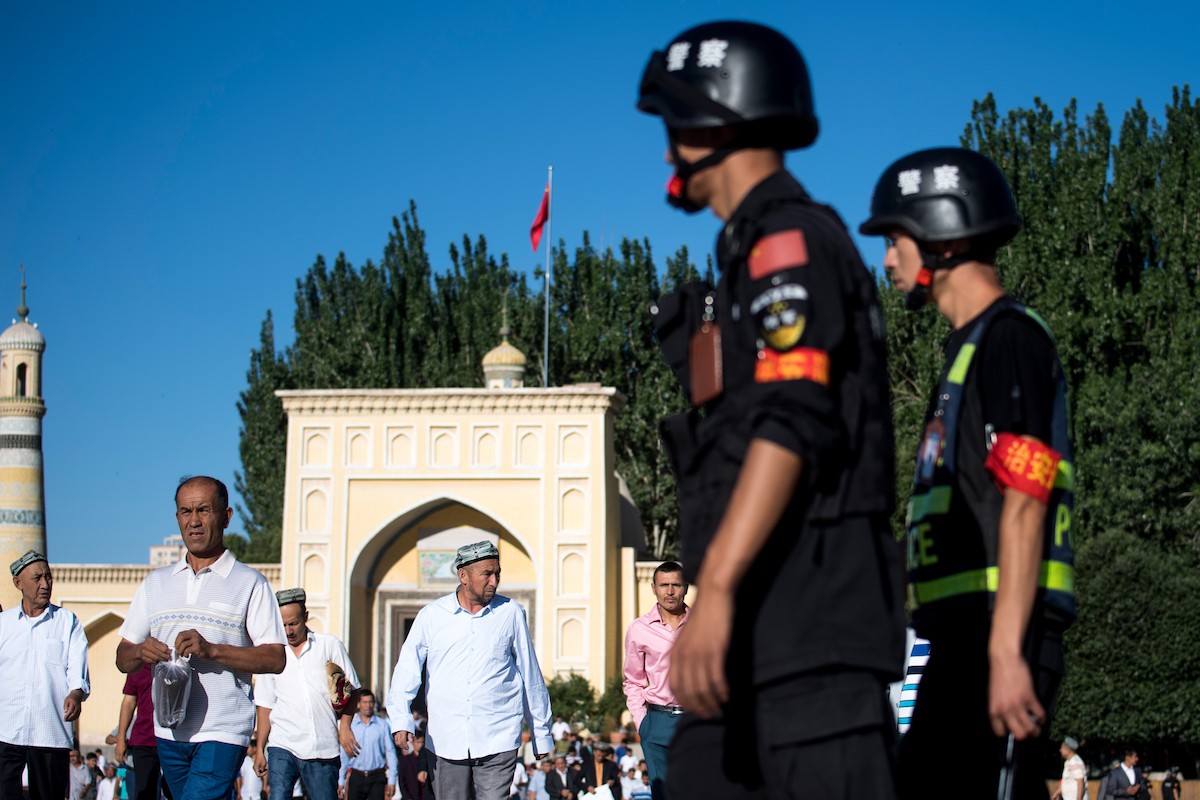Chinese authorities banned most Uyghurs praying in mosques – and even in their homes – during the Eid al-Fitr holiday, marking the end of the Islamic holy month of Ramadan, in many parts of the Xinjiang Uyghur Autonomous Region, residents and police said.
People age 60 and older were allowed to pray in a local mosque under heavy police surveillance during Eid, which fell on April 20-21 this year, they sources said.
Since 2017, China has restricted or banned ethnic customs and religious rituals among the mostly Muslim Uyghurs in an effort to stamp out “religious extremism.”
During this year’s Eid, the most important Muslim holiday, authorities in Xinjiang patrolled city streets and searched houses to prevent people from secretly praying inside their homes, the sources said.
An administrative staffer from Yarkowruk town in Akesu Prefecture said one mosque there was open for Eid prayers.
“Our police officers went to the mosque to watch the people,” the employee said. “I don’t know if people needed permission to go to the mosque because I did not go there.”
Likewise, only one mosque was open for Eid prayers in Bulung town, Bay county, an officer at the local police station said, though only residents over 60 years old were allowed to pray if they wanted.
The government issued a notice that people younger than 60 could not pray on the Eid holiday, he added.
Only a dozen Uyghur elders in Bulung attended Eid prayers in a mosque as three police officers and several auxiliary police staffers observed and wrote down the Uyghurs’ names, said the officer from the town’s police station.
“The mosque was open yesterday, and we went there to surveil people,” the police officer said, adding that he told residents under 60 not to go to the mosque.
One local resident, who like others in this report requested anonymity for safety reasons, told Radio Free Asia that authorities destroyed almost all the mosques in Nilka and Kunes counties, so that even if the government allowed people to pray during Eid, they could not go to a mosque to do so.
A staffer at the Aktope police station in Tokkuztara county told RFA that no permission was granted for residents, including senior citizens, to hold holiday prayer gatherings at their homes, and no exceptions were made.
A resident of Peyziwat county in Kashgar Prefecture told us that she did not visit anyone for the Eid celebration or prepare sangza, a special fried dough that Uyghurs eat during Eid celebrations.
A woman from a residential area in Maralbexi county in Kashgar Prefecture said none of her neighbors or relatives the held Eid prayers or celebrations
“The mosque was not open,” she told RFA. “My husband is a policeman, and he went to work on Eid. There was no Eid al-Fitr prayer here. It was quiet.”
Copyright © 1998-2020, RFA. Used with the permission of Radio Free Asia, 2025 M St. NW, Suite 300, Washington DC 20036.







